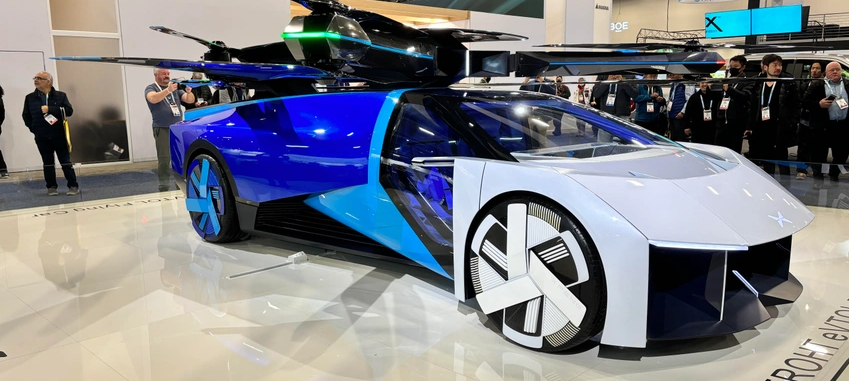With more than 130,000 attendees coming together for CES 2024 this week, it’s been an exciting week of new technology innovations. Automakers have been front and centre at this year’s event, as advances in vehicle technology continue to gather pace. With the event wrapping tomorrow, here’s a look at some of our biggest takeaways from the show:
Leading OEMs race to implement Artificial Intelligence (AI). Since the launch of ChatGPT, AI has exploded into the mainstream – and leading OEMs are taking note. Mercedes-Benz debuted its MBUX Virtual Assistant, a new tool for drivers that uses generative AI and advanced 3D graphics. Mercedes-Benz says the technology will pave the way for an easier, more intuitive, and fully digitized experience for drivers. We’ve also seen other tech brands looking to expand their AI solutions into the automotive space. Intel announced plans to extend its ‘AI Everywhere’ strategy into the automotive industry with a new line of AI-enhanced software-defined vehicle (SDV) system-on-chips (SOC). Zeekr is set to be the first OEM to adopt the much-anticipated SOCs to enable AI acceleration at scale.
Electric vehicles are getting revamped. While electric vehicles (EVs) have long been lauded for their environmental impact, consumer demand for more efficient and intuitive technology within EVs is growing. As a result, across the globe, leading automakers are looking at refreshing and revamping their EVs for consumers. Honda announced plans to launch its latest EV line in North America in 2026, with vastly improved battery life, citing that by the late 2020s, its 0 Series EV will fast-charge from 15% to 80% in just 15 minutes.
Automakers are adapting to the versatile needs of drivers. In the past ten years, the usage of cars has become more varied than ever. With many consumers using their car not just as a personal vehicle, but also as a tool for their income stream (think: Uber, Uber Eats, Instacart, etc), automakers are adjusting their offerings to reflect the diverse needs of today’s drivers. For example, Kia announced its upcoming line of highly customizable EVs, designed to enhance versatility and cater to both businesses and individuals. Kia says the line will enable a single vehicle chassis to be used to fulfill multiple mobility needs, transitioning from a taxi during the day to a personal vehicle at night.
Designing for the present while creating for the future. After years of flashy concept cars being unveiled at CES, you’d think consumers would be more interested in tech they can actually use. But automakers aren’t taking their foot off the pedal when it comes to unveiling exciting futuristic designs and establishing themselves as forward-thinking tech visionaries. For example, Xpeng unveiled its supercar concept: the eVTOL Flying Car, with hopes that consumers can eventually use it to fly above congested traffic. While the company did not share immediate availability, it’s interesting to see what the future of travel might hold as OEMs rethink even the most basic facets of transportation in a big way.
One thing is for certain: cars today aren’t just cars. They are software-defined, tools for income, AI-powered assistants, and everything in between. To learn more about the future of software-defined connected vehicles (SDCV)s and how they are redefining the future of mobility, learn more about our solutions below.

